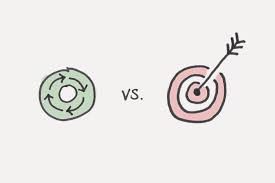Effective decision-making is critical for leaders at all levels. It ensures informed and timely choices that align with company goals and values. At omeraftab.com, we emphasize the importance of strategic decision-making for navigating the complex business landscape successfully.
Understanding the Decision-Making Process
The decision-making process starts with identifying the problem or opportunity. This initial step sets the direction for the entire process. Once the issue is identified, gather relevant information. This includes data analysis, seeking expert opinions, and considering past experiences.
After collecting the necessary information, weigh the options. Evaluate the potential impact of each alternative on the company’s goals and values. At omeraftab.com, we believe aligning decisions with the company’s core values is essential. It helps maintain integrity and trust within the organization and with stakeholders.

Making Informed Decisions
Informed decision-making requires understanding the available options and their potential outcomes. This can be achieved through:
- Data-Driven Analysis: Use data and analytics to assess the impact of each option. This helps in making objective and rational decisions.
- Expert Consultation: Seek advice from experts within and outside the organization. This provides a broader perspective and helps identify potential risks and opportunities.
- Scenario Planning: Consider various scenarios and their possible outcomes. This helps prepare for uncertainties and make more resilient decisions.
- Stakeholder Input: Engage with stakeholders to understand their perspectives and concerns. This ensures the decision is inclusive and considers the interests of all parties involved.
Timeliness in Decision-Making
Timely decision-making is crucial for staying competitive in today’s fast-paced business environment. Delays in decision-making can lead to missed opportunities and increased risks. Set clear deadlines and prioritize decisions based on urgency and importance.
At omeraftab.com, we advocate for a proactive approach to decision-making. Anticipate potential issues and opportunities. Make decisions before they become critical. Proactive decision-making helps mitigate risks and seize opportunities in a timely manner.
Aligning Decisions with Company Goals and Values
Aligning decisions with company goals and values ensures consistency and coherence in actions. This involves:
- Clear Vision and Mission: Understand the company’s vision and mission. This provides a framework for making decisions that support overall objectives.
- Core Values: Ensure decisions reflect the company’s core values. This helps build a strong organizational culture and maintain stakeholder trust.
- Long-Term Perspective: Consider the long-term impact of decisions on growth and sustainability. Avoid short-term gains at the expense of long-term success.
- Ethical Considerations: Make decisions that are ethically sound and socially responsible. This helps build a positive reputation and ensures compliance with legal and regulatory requirements.
Effective decision-making is a vital skill for leaders and managers. It involves making informed and timely choices that align with company goals and values. At omeraftab.com, we emphasize the importance of strategic decision-making to drive growth and sustainability. By following a structured decision-making process, making informed choices, ensuring timeliness, and aligning decisions with company goals and values, organizations can navigate the complexities of the business environment successfully and achieve long-term success.
For more insights on strategic decision-making and other business strategies, visit omeraftab.com.